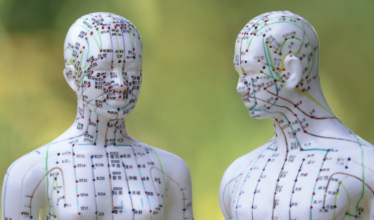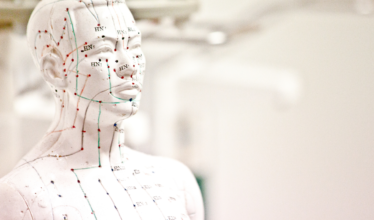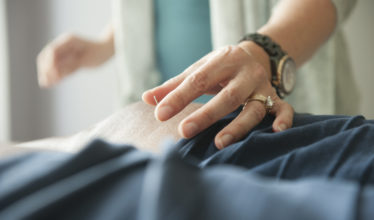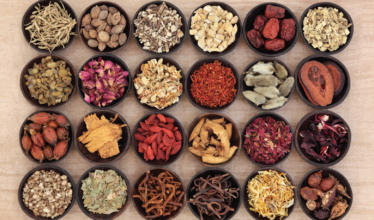Program key for the following comparative summary charts:
DAC = Doctor of Acupuncture
DACHM = Doctor of Acupuncture with a Chinese Herbal Medicine Specialization
MAC = Master of Acupuncture
MACHM = Master of Acupuncture with a Chinese Herbal Medicine Specialization
Program Highlights
| Program Highlights |
MAC |
MACHM |
DAC |
DACHM |
| The only accredited graduate program to offer the National Acupuncture Detoxification Association (NADA) training and related clinical experience as part of the curriculum. |
✓ |
✓ |
✓ |
✓ |
| The opportunity to work with a wide variety of clinical supervisors with different theoretical perspectives and practice styles. |
✓ |
✓ |
✓ |
✓ |
| Exposure to different clinical approaches such as: Chinese and Western nutrition therapy, qi gong, cupping, gua sha, moxibustion, scalp acupuncture, electro-acupuncture, and tuina. |
✓ |
✓ |
✓ |
✓ |
| The opportunity to see patients from diverse backgrounds and in community outreach settings. |
✓ |
✓ |
✓ |
✓ |
| The opportunity to engage in specialty courses in the treatment of certain health conditions and populations, including pain management and women’s health. |
✓ |
✓ |
✓ |
✓ |
| Flexible, full-time formats: two days each week, with some online courses, and occasional intensives and self-scheduled electives offered outside of the two-day schedule. |
✓ |
✓ |
✓ |
✓ |
| A cohort learning format that provides mentorship and flexibility for students to learn in small groups and in one-on-one settings during clinical rotation. |
✓ |
✓ |
✓ |
✓ |
| The opportunity to gain practical experience in prescribing Chinese herbs, and the management of a Chinese herbal dispensary. |
|
✓ |
|
✓ |
| The opportunity to experience integrative practices in at least one of several possible conventional healthcare settings. |
|
|
✓ |
✓ |
| The opportunity to enhance and deepen ones practice by sharpening diagnostic skills and additional specialization to confidently treat specific populations. |
|
|
✓ |
✓ |
Learning Outcomes
| Learning Outcomes |
MAC |
MACHM |
DAC |
DACHM |
| Demonstrate a comprehensive knowledge of the history and foundational theories of acupuncture and its different traditions. |
✓ |
✓ |
✓ |
✓ |
| Demonstrate a comprehensive knowledge of the tradition of Constitutional Five Element Acupuncture and Eight Principle treatment strategies. |
✓ |
✓ |
|
|
| Demonstrate a comprehensive knowledge of the tradition of Constitutional Five Element Acupuncture, Eight Principle treatment strategies and its different traditions. |
|
|
✓ |
✓ |
| Demonstrate a comprehensive knowledge of Chinese Herbs from a unique integration of Constitutional Five Element perspectives, classical Chinese medicine, Eight Principle diagnosis, and Zang-Fu differentiation. |
|
✓ |
|
✓ |
| Express an understanding of the biomedical theories of health and disease relevant to the practice of acupuncture and herbal medicine. |
✓ |
✓ |
✓ |
✓ |
| Demonstrate effective communication with a wide variety of professional colleagues. |
✓ |
✓ |
✓ |
✓ |
| Develop a healing presence both personally and professionally that will facilitate growth as a practitioner. |
✓ |
✓ |
✓ |
✓ |
| Develop specialization in the treatment of certain health conditions and populations. |
✓ |
✓ |
✓ |
✓ |
| Demonstrate support of clients at all levels of being – body, mind, and spirit. |
✓ |
✓ |
✓ |
✓ |
| Understand the business and practice management skills that will ensure success in the workforce. |
✓ |
✓ |
✓ |
✓ |
| Develop a collaborative approach to health care. |
|
|
✓ |
✓ |
| Be an effective clinician/educator in an integrative care setting. |
|
|
✓ |
✓ |
| Be able to communicate effectively with other health care providers regarding the results of diagnostic studies. |
|
|
✓ |
✓ |
| Understand research and scholarship in the field of health and wellness. |
|
|
✓ |
✓ |
Program Overview
| Program Overview |
MAC |
MACHM |
DAC |
DACHM |
| Total Credits |
128.25 |
168.25 |
150.25 |
190.25 |
| Total Instructional Hours |
2,385 |
3,067.5 |
2,805 |
3,717 |
| Years to Complete Program |
3 |
4 to 4.3 |
3.7 |
4.3 |
| Trimesters to Complete Program |
9 |
12 to 13 |
11 |
13 |
Course Work
| Course Work |
MAC |
MACHM |
DAC |
DACHM |
| Level 1 CoursesA |
28.5cr |
28.5cr |
28.5cr |
28.5cr |
| Level 2 CoursesA |
41cr |
41cr |
41cr |
41cr |
| Level 3 CoursesA |
49.75cr |
49.75cr |
49.75cr |
49.75cr |
| Bioscience Elective Courses |
3cr |
3cr |
3cr |
3cr |
| Flex Core Courses B |
6cr |
7cr |
6cr |
7cr |
| Chinese Herb Courses |
|
39cr |
|
39cr |
| Doctoral Courses |
|
|
22cr |
22cr |
Acupuncture Clinic Experiences
| Acupuncture Clinic Experiences |
MAC |
MACHM |
DAC |
DACHM |
| # Observations |
30 |
30 |
30 |
30 |
| # Primary Treatments |
125 |
125 |
125 |
125 |
| # Secondary Treatments |
125 |
125 |
125 |
125 |
# Community Health Initiative
Treatments |
23 |
23 |
23 |
23 |
Evidence informed treatment,
integrative clinic, or integrative case discussions |
|
|
120 hours |
120 hours |
Chinese Herbal Medicine Clinic Experiences
| Chinese Herb Clinic Experiences |
MAC |
MACHM |
DAC |
DACHM |
| # Primary Treatments |
|
40 |
|
40 |
| # Secondary Treatments |
|
65 |
|
65 |
A – Levels 1-3 Course Work
Students progress through three foundational levels of acupuncture training, each with an overarching theme that guides program goals and objectives. The trimesters flow and build from one to the next, and the coursework is sequenced to provide a rich and transformative educational experience, as summarized below.
Level 1
Students are introduced to MUIH’s foundational philosophical principles, living within the rhythms of nature, living with mindfulness, and the skillful and purposeful use of language as tools for being a powerful healing presence and catalyst for change. An intensive on healership that introduces students to the art, practice, and science of being a healing presence is followed by coursework designed to open up the power of observation and sensory awareness.
Level 2
Coursework delves deeper into the topics introduced in Level I, focusing on theory, diagnosis, treatment planning, and skills development. Students begin supervised clinical work and train at the oncampus faculty-supervised clinic and at the off-campus Community Clinic Sites. Near the end of this level, each student will take the Level II Comprehensive Exam. Upon passing the exam, the student may begin the expanded clinical portion of the program.
Level 3
Level III begins with a three-day off-campus retreat. The retreat serves as a bridge between the academic work of Levels I and II, and the clinical experience of Level III. Over the course of Level III, each student generates a minimum of 10 patients, and completes, under supervision, a minimum of 250 treatments. In addition, each student performs at least 180 treatments on patients at Community Clinic Sites (begun in Level II). Beyond the increased clinical focus, Level III coursework focuses more deeply on advanced topics in theory, diagnosis, treatment planning, and skills development.
B – Flex Core Courses
Flex core courses are core programmatic courses however they are categorized as “flex core” because of the flexibility of when a student can take these courses. All other programmatic courses follow a structured timeline.
Compare Herbal Medicine Programs at MUIH
MUIH offers herbal medicine programs that vary in their foundational philosophies and how herbs are used to promote health and wellness.
Read More





